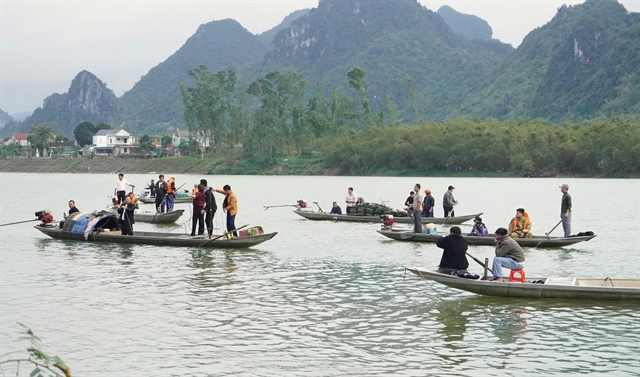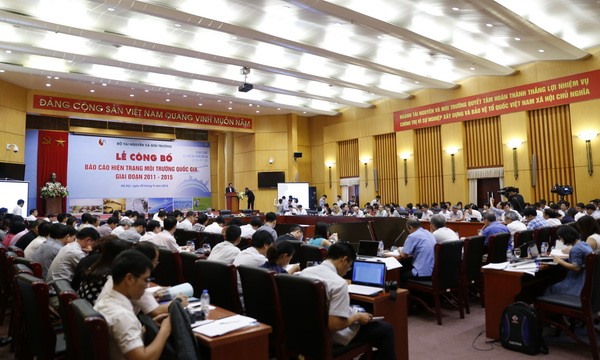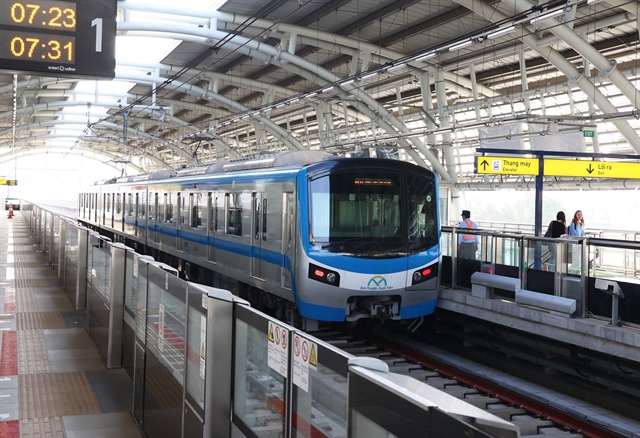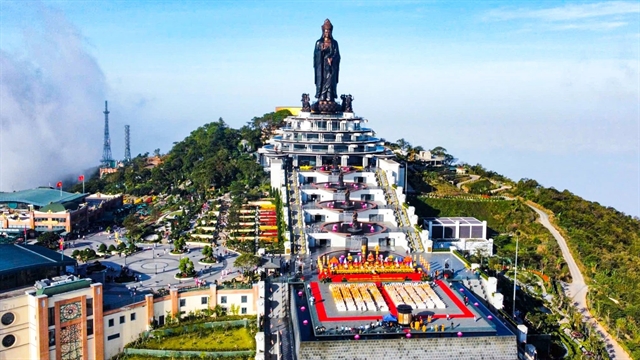 Society
Society

Residents and industrial clusters should be responsible for treating their waste instead of relying on the Government’s budget, said Hoàng Dương Tùng, deputy director general of the Vietnam Environmental Administration under the Ministry of Natural Resources and Environment.
 |
| The National Environment Report for 2011-2015 was released on Thursday by the Ministry of Natural Resources and Environment. — Photo monre.gov.vn |
HÀ NỘI — Residents and industrial clusters should be responsible for treating their waste instead of relying on the Government’s budget, said Hoàng Dương Tùng, deputy director general of the Vietnam Environmental Administration under the Ministry of Natural Resources and Environment.
“A Vietnamese household pays only some VNĐ20,000 (US$0.9) for waste treatment per month,” Tùng said at the unveiling of the National Environment Report for 2011-2015 on Thursday. “I don’t think there is any other country that charges a lower waste management fee than that.”
“The same happens with wastewater treatment. Each household is paying only VNĐ800 ($0.04) per cubic metre,” he said. This equals some VNĐ5000 ($0.2) per month, based on the construction ministry’s domestic water supply standard in 2006. “Such amount is not enough for agencies to treat all the wastewater. They need to rely on the Government for financial support."
According to the report, only 3-5 per cent of some 900 industrial clusters in the country have common treatment plants. The rest are either treating wastewater with their own systems or releasing it straight into the environment.
“It costs hundreds of dollars to build a common treatment plant, so industrial clusters can’t depend solely on the Government’s budget,” Tùng said.
The report also mentions that industrial development activities had been creating pressures on the environment. For example, the
Failed environmental resolutions
The country failed to reach most of its environmental goals, even though the National Assembly and the Government issued various decrees and resolutions to support them, the report says.
Only one out of six goals was reached in the last four years, reflecting the percentage of cases of servious environmental pollution that were resolved.
The reasons behind this pattern of failure include enterprises’ lack of interest in waste treatment, ineffective inspections and a shortage of environmental management officials.
“There are only 11 officials in charge of all environmental issues of the Tây Nguyên (Central Highlands) (some 54.000sq.km),” Tùng said. “They are overloaded with work. We need to recruit more officials specialising in environmental management to serve in local areas.”
According to the report, the five other environmental goals that were not realised are: 1) the ratio of forest coverage, 2) the percentage of urban dwellers with access to clean water, 3) the percentage of rural residents with access to clean water, 4) the percentage of industrial zones and industrial clusters with qualified common effluent treatment plants, and 5) the percentage of solid waste treated.




